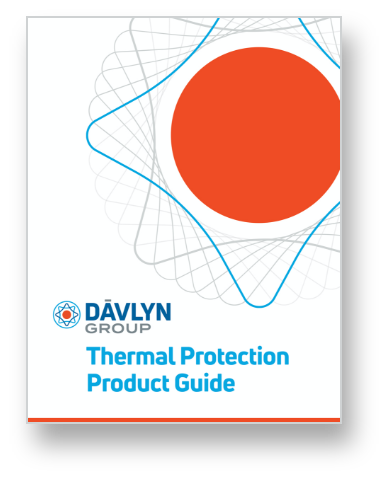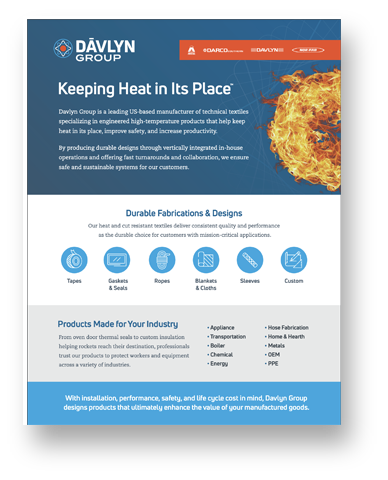Nonwoven materials are becoming increasingly popular in a variety of industrial settings because they are so versatile. They have unique properties that support their use in everything from filtration to insulation to medical uses. Since nonwovens are useful in a range of industrial situations, they are essential to several industries with a variety of specialized purposes.
Among the many uses of nonwovens, the production of needled blankets using nonwoven industrial fabrics is particularly important. Needled blankets, which are made by mechanically interlocking fibers together without any binding agents or adhesives, result in a lightweight but durable material with numerous applications.
Discover the most common applications of nonwovens in the technical textile industry, as well as details about the importance of this fabric type for industrial purposes.
What Are Industrial Fabrics?
Industrial fabrics, also called technical textiles, are fabrics designed and engineered to be used in products, processes, or services for a functional, non-decorative purpose. They are used by non-apparel industry professionals for challenging and high-performance applications, and their conceptual design is often specially fabricated with physical properties in mind and driven by how the textiles need to perform in their intended function. They also have specialized fabric finishes that aid in that function.
While still made of fibers, industrial fabrics differ from apparel textiles in many ways, from their materials—performance fibers, yarns, and special chemicals—to their intended functions. Functionality is the most important feature of these textiles because the fabric must be able to handle the environmental factors and structural requirements of the application, and there could be dangerous consequences if the fabric can’t perform as intended in cases like PPE and insulation of heat or flames. But their manufacturing is also distinct, and more complicated, than non-industrial fabrics because the fibers are more expensive and more challenging to weave into the finished textile.
Characteristics of Industrial Fabrics
So, what makes an industrial fabric fall into the technical category as opposed to a standard textile? Typically, a textile’s intended application determines its classification as an industrial fabric, and each type of industrial fabric product has its own set of advantages. Overall, industrial fabrics have a wide range of applications, so many are created with unique qualities: antibacterial, anti-static, chemical resistant, flame retardant, odor absorbent, UV resistant, or insect-repelling (and sometimes a combination of these elements).
The characteristics can vary depending on if the fabric is used on its own or paired with another—if the textiles are used as a component part of another product, they can alter the strength, performance, and other properties of that item. Weave patterns also play an important role in the characteristics—and ultimately, the performance—of an industrial fabric. The way a textile is woven can help determine strength, protection capabilities, and filtration abilities. Together with the fabric’s qualities and manufacturing, weave patterns help determine exactly what the fabric was intended for and how well it works for its purpose.
What Are Nonwoven Technical Textiles?
Nonwoven industrial fabrics are sheets that are bonded together by fibers or filaments. This can be done with a mechanical, thermal, or chemical process. They are unique in that they do not need fibers to be converted to yarn; rather, they are “glued” together. Nonwovens are very popular because of their flexibility and strength.
This type of engineered fabric is durable but inexpensive enough for single-use applications. Nonwovens are often created to prioritize elasticity, flame retardancy, strength, softness, liquid repellency, sterility, or a combination of these properties—this is to manufacture fabrics for specific jobs or industry applications. They are used in a variety of industries, including healthcare, automotive, manufacturing, and more. Some of their key applications include:
- Filtration
Due to their high surface area and ability to capture and retain small particles, nonwovens can be designed to have specific filtration properties for a myriad of purposes. - Landscaping
Nonwovens can be created to reinforce soils and prevent erosion in civil engineering applications. They can also be used in drainage systems, retaining walls, and landfills. - Medical
Wound dressings, surgical gowns, and drapes can be created from nonwovens for better absorbency and drainage, as can personal protective equipment (PPE) such as masks and gowns. - Insulation
Nonwoven fabrics can provide thermal and acoustic insulation for everything from automotive to aerospace to construction applications since they are lightweight and flexible. - Manufacturing
Various industrial applications, such as in packaging, carpet backing, and machinery insulation gain increased durability, strength, and flexibility from nonwoven technical textiles.
Applications of Nonwoven Needled Blankets
Among the many uses of nonwovens, needled blankets—which are made by mechanically interlocking fibers together, without the need for any binding agents or adhesives—are a specifically versatile option. They are lightweight, durable material, and versatile, and commonly made from fiberglass, silica, and ceramic.
The list of industries that use needled blankets is long, and it includes OEM, metals, energy, chemical, and transportation. Their applications are just as varied: needled blankets can do almost anything, from heat treatments and containment to insulation of furnaces and pipes, or sound to protection from flames, heat, welding, sparks, and molten materials. Needled blankets have exceptionally high temperature capabilities, ranging from 1,000 degrees Fahrenheit (540 degrees Celsius) up to 2,600 degrees Fahrenheit (1,430 degrees Celsius) depending on the specific materials used to construct the blanket.
Why Choose Davlyn Group for Needled Blankets?
To get the best needled fabrics, come to the Davlyn Group. We manufacture the top industrial fabrics and technical textiles for whatever you need—applications for our industrial fabrics include marine and industrial insulation, expansion joints, gasketing, and equipment covers. From woven to needled fabrics, whether it’s one of our high-quality standard products or a custom job, we can manufacture the industrial textiles you need.
We’re a top industrial fabric manufacturer for marine and industrial insulation, expansion joints, gasketing, equipment covers, and more. For questions about our needled fabrics, contact the Davlyn Group.



